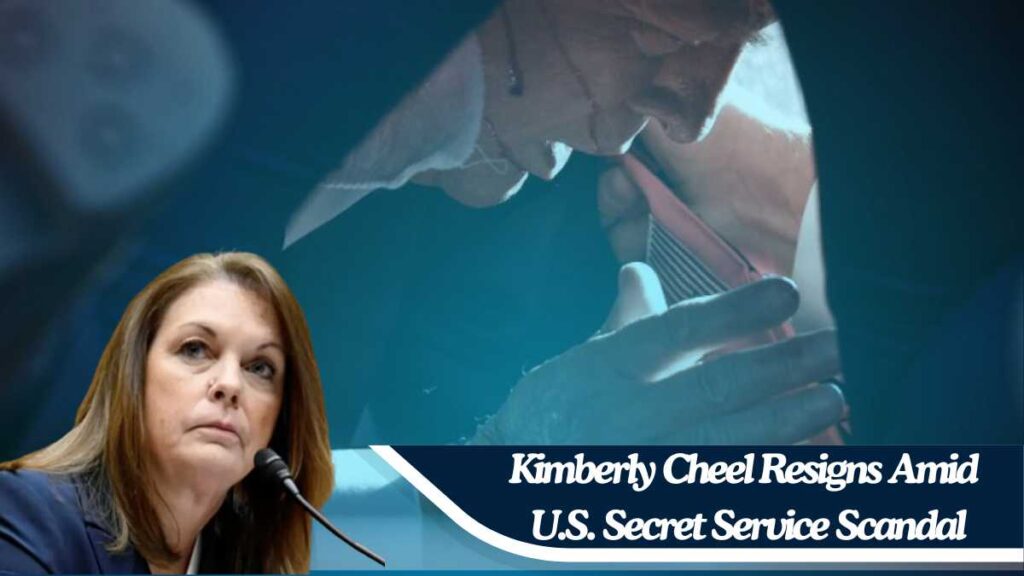In a dramatic turn of events, the Director of the U.S. Secret Service, Kimberly Cheel, has resigned following intense scrutiny and allegations of perjury during a Congressional testimony. This resignation marks a significant moment in U.S. political history, highlighting issues of accountability and transparency within federal agencies.
A Contentious Testimony
Cheel’s resignation comes after a disastrous testimony before Congress, where she was accused of lying under oath. During the session, Congresswoman Nancy Mace confronted Cheel with a series of pointed questions, highlighting discrepancies and failures in the Secret Service’s actions. Mace’s relentless questioning left Cheel with no option but to admit to several critical failures, culminating in her resignation.
Here’s an excerpt from the testimony:
Congresswoman Mace: “Both sides of the aisle today have asked for your resignation. Would you like to use my five minutes to draft your resignation letter, yes or no?”
Kimberly Cheel: “No, thank you.”
The questioning continued with Mace pressing on whether the Secret Service had been transparent with the committee. Despite Cheel’s attempts to maintain composure, her responses only fueled further doubts about her leadership and integrity.
The Fallout
The immediate consequence of Cheel’s resignation is the appointment of an acting director. However, the broader implications for the Secret Service and its operational integrity are profound. The agency has been under fire for numerous lapses, including a high-profile incident where agents failed to act despite having a clear line of sight of a shooter. These failures have eroded public trust and raised questions about the agency’s competence.
Broader Implications
This scandal isn’t isolated to the United States; similar issues of accountability and transparency are seen worldwide. However, the spotlight on the U.S. Secret Service underscores a critical problem in modern governance—leaders often need to be forced out rather than voluntarily stepping down when significant mistakes occur.
The resignation has sparked a debate on the effectiveness of the Secret Service and the broader implications for national security. As Cheel steps down, many are left wondering about the future direction of the agency and its ability to restore credibility.
Impact on the Biden Administration
This scandal also has political ramifications. The Biden administration is already under scrutiny, and this adds another layer of complexity. President Biden, who has been relatively absent from the public eye due to health concerns, has delegated more responsibilities to various secretaries, raising questions about his capacity to lead.
Recently, Biden made a public appearance, dispelling rumors about his deteriorating health. However, his limited interaction with the press and the delegation of presidential duties have fueled speculation about his ability to complete his term.
The Kamala Harris Question
With Biden’s health in question, there’s increasing speculation about Vice President Kamala Harris potentially stepping in as President before the next election. This possibility has divided the Democratic Party, with significant figures like former President Obama suggesting an open convention to decide the party’s future.
Harris’s potential ascension to the presidency comes at a critical time, with emerging threats to U.S. national security. Her ability to handle such challenges will be crucial in determining her political future and the direction of the Democratic Party.
The Road Ahead
The U.S. Secret Service scandal, marked by Cheel’s resignation, is a stark reminder of the importance of accountability in leadership. As the agency seeks to rebuild its reputation, the broader political implications continue to unfold. The Biden administration faces significant challenges, and the potential for a change in leadership looms large.
Discussion Questions:
- Do you think Kimberly Cheel’s resignation was the right move for the Secret Service and the Biden administration? Why or why not?
Feel free to share your thoughts and engage with others in the comments section below.

